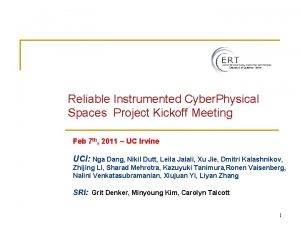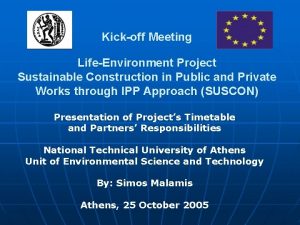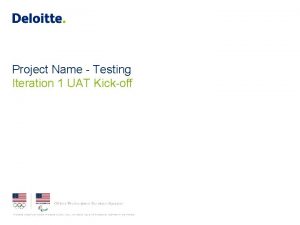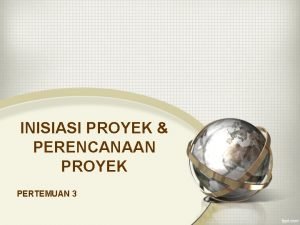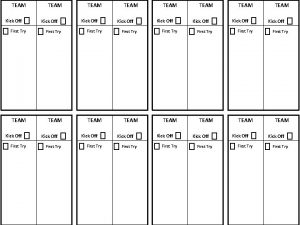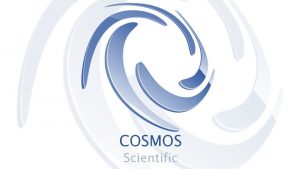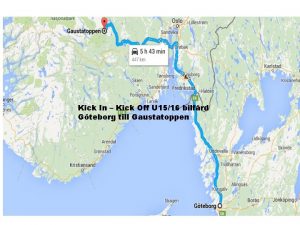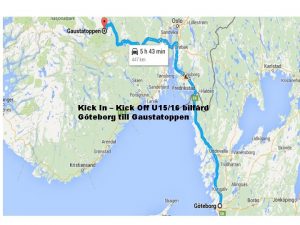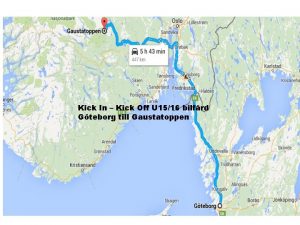Discover the Cosmos Kick off meeting CERN Sept









- Slides: 9

Discover the Cosmos Kick off meeting CERN Sept 1 st – 2 nd 2011 HEP in UK (England & Wales) School Curricula Lynne Long, University of Birmingham, UK

Advanced Level Physics – A Choice of Syllabi • There are 4 different boards offering 6 different A Level examinations in England & Wales, as well as some schools offering Baccalaureat qualifications. • In the IB, HEP is offered as an option (22 hours work) in the Higher Level. • There is a common core to all Advanced Level Physics curriculum, but there are some differences in approach and content, and order of teaching some concepts.

Common Themes underpinning the specific curricula All syllabi aim to encourage students to: • develop an enthusiasm for the subject; • understand the way the subject develops through experiment, theory, insight and creative thought; • appreciate the role of Physics in society; • appreciate the interconnectiveness of the subject, and the ways in which different strands can be used to solve problems and give new insights into the natural world; • appreciate how science works.

“How Science Works” theme Students should be able to: • use theories, models & ideas to develop and modify scientific explanations; • use knowledge and understanding to pose questions, define problems and present arguments & ideas; • use appropriate methodology to solve problems; • analyse & interpret data to find evidence to support a theory; • appreciate the role of the scientific community in validating new knowledge – and how theories have been changed by new discoveries, realising that our existing theories are equally tenuous; • communicate information & ideas in appropriate ways ………. etc.

Relevant HEP core content across most syllabi: • Basic mechanics, including motion in a circle & centripetal force, and energy & momentum conservation principles; • Electron acceleration and deflection in electric & magnetic fields; • Basic atomic structure and radioactivity; • E = mc 2 , fission & fusion principles (rarely E 2 = m 2 c 4 + p 2 c 2 or “alternative units”).

Specific Particle Physics content -1 • Classification of particles – Hadrons (Baryons and Mesons) and Leptons, often citing u, d and s quarks only; • Antiparticles; • Conservation of charge, Baryon number, Lepton number and Strangeness in particle interactions; • Concept of exchange particles (Bosons) to explain forces – W & Z in relation to radioactive decay often citing as an example, the weak force; ………in AS/Y 12 for 50% of available syllabi, in A 2/Y 13 for the rest

Specific Particle Physics content -2 • Particle accelerators only mentioned in 2/7 possible syllabi, and then with detail only needed in IB option; • Spin, colour, Feynman diagrams, Pauli Exclusion Principle , Uncertainty Principle only mentioned in IB option • Particle detectors only mentioned in IB option, and then only photomultipliers and bubble chambers

Some conclusions and points to consider -1 • Teachers & students in the UK are very constrained by what is in the curriculum and many teachers feel that they don’t have time to expand on this. • HEP Curriculum for the majority of UK students is very restricted. • The interesting spin offs that really go into what the LHC experiments are all about, generally need an expansion in curriculum.

Some conclusions and points to consider -2 • Any scenarios developed in the HEP area need to at least start off firmly with the school curricula, to encourage teachers and students to look at them. • Any activities developed need to be interactive and interesting - build on curiosity already aroused - to encourage students to learn more and extend their work outside the basic knowledge needed for exams. • Working closely with a University department / recognised links with CERN and “real researchers” , has shown to be a good incentive for schools to get involved – it ticks some of the “How Science Works” boxes and really enthuses many students. • Opportunities to interact with other interested students across Europe would be an added incentive for many.
